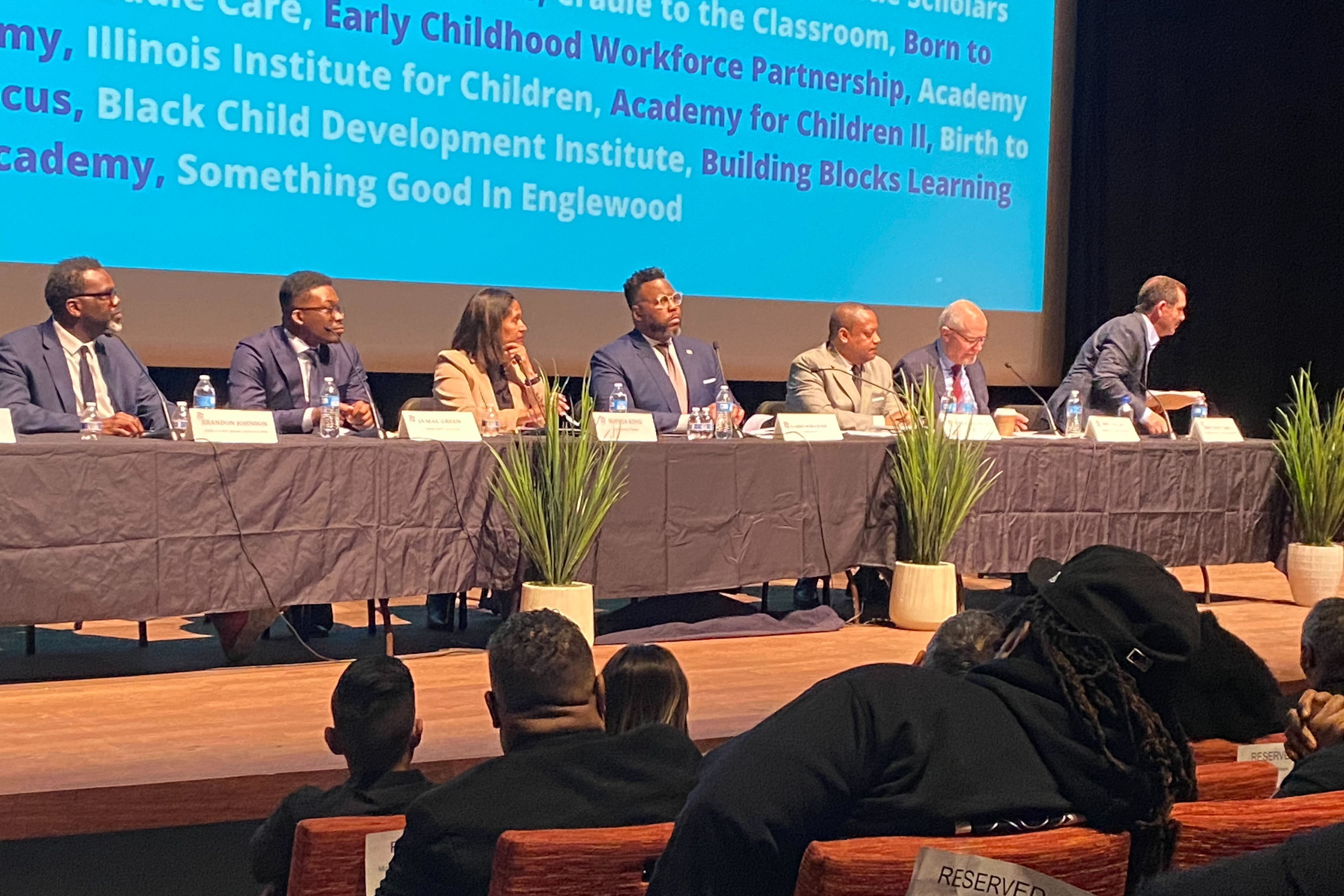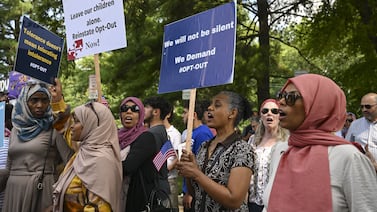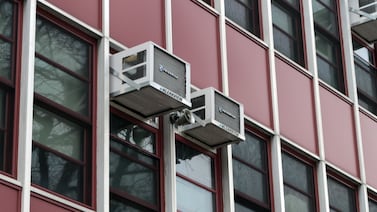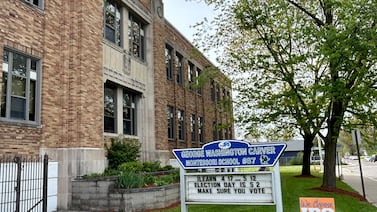Chicago’s mayoral candidates say the city needs to increase wages for early childhood educators, make child care affordable for families, collaborate with local providers and state agencies to make funding easier, and even allow child care providers to move into public schools that are underenrolled.
The candidates detailed how they would reform child care and early childhood education at a forum organized by Child Care Advocates United — a professional organization in Illinois that supports early childhood educators and providers — on Wednesday night. All of the mayoral candidates except incumbent Mayor Lori Lightfoot attended the session.
Art Norman, a newscaster at NBC5 Chicago, and Tia Ewing, from FOX 32 Chicago, moderated the panel.
The mayor and City Council play a critical role in licensing and funding child care providers. Many candidates have promised to make child care more affordable, with few promising universal preschool for 3-years-olds.
Lightfoot continued rolling out universal preschool to families with 4-year olds in the city, expanding the plan promised by her predecessor Mayor Rahm Emannuel. However, the initiative hit bumps when the city’s early learning chief stepped down in the second year of the rollout and the early days of COVID-19 slowed down the city’s efforts.
Across Illinois, childcare providers are struggling to attract and retain workers, who are often paid less than their elementary schools peers. Parents of young children also struggle to find affordable child care, often comparing the cost to college tuition. The state has increased funding for early childhood education, but advocates say that more can be done.
At the Wednesday forum, candidates offered plans for early childhood education that included increasing the minimum wage to $15 an hour for child care providers, taxing cannabis sales and gambling for additional revenue, and working with state agencies to make it easier for all child care providers to receive funding.
All eight candidates in attendance agreed that child care providers need to be paid more.
Ald. Sophia King, who represents Chicago’s south lakefront neighborhood, proposed increasing pay for child care providers and offering incentives such as zero-interest loans for mortgages and dollar lots to prevent educators and child care providers from leaving the city.
King was a part of the push to get the city to increase minimum wage for workers to $15 an hour. Child care providers with more than three employees already have to comply with the city’s rules.
State Rep. Kam Buckner, who represents the city’s South Side in Springfield, said he doesn’t believe there is just a workforce shortage in early childhood education and child care, but an issue of where the city is putting resources. In addition to raising wages, he said the city needs to collaborate with Chicago Public Schools and the city’s community colleges to streamline a pipeline to get more workers into child care centers.
Forum moderators asked the candidates how they would work with state agencies to make accessing funding easier for child care providers and prioritize additional money for community-based organizations. Currently, child care providers in Chicago and across the state get funding from the Illinois State Board of Education, the Department of Human Services, and the Department of Child and Family Services.
U.S. Rep. Jesús Chuy García, whose district includes the city’s south west sides and surrounding suburbs, proposed creating a new city agency to look into early childhood education.
“There isn’t an overarching structure monitoring the status and effectiveness of those services,” García said at the forum. “That is how you wound up last year with the Department of Family Services cutting 4,000 slots that community providers had.”
Neighborhood advocate Ja’mal Green said there is a disconnect between city hall and providers. To fix this, he said he would hire more people from local communities, put mobile city halls throughout neighborhoods, and create resource centers in communities across the city so child care providers could be directed to available resources.
The candidates agreed that the city needs to collaborate with different organizations to ensure families know what options are available for child care.
“It’s about streamlining processes and creating collaboration. We’ve said this a few times tonight, but way too often we’ve created spaces for competition and we need to be creating spaces for collaboration,” said Buckner. “ I think the city has to lead that process and has to lead the conversation.”
Most candidates also said they would use cannabis and casino tax revenue for additional funding to support early childhood education and child care providers who are dependent on state and federal funding to survive.
Cook County Commissioner Brandon Johnson, who released his education plans earlier in the day, said he supports using revenue from cannabis and casino tax revenue and finding ways to tax the wealthy Chicagoans.
“From a corporate head tax to a real estate transfer tax to a financial transfer tax, the ultra rich get to put skin in the game,” said Johnson. “Over 70% of Chicagoans said that the wealthy have to pay their fair share. My budget plan articulates that.”
King and Ald. Roderick Sawyer, whose district covers the city’s south side, agreed that cannabis and casino tax revenue should be used toward education, but noted that the revenue has been marked for other funding.
The city’s gambling and entertainment tax revenue will go to the city’s pension fund for city workers, while the state’s cannabis tax revenue will go to state agencies and community-based organizations to address substance abuse, mental health, legal aid, and housing. Any remaining funds go to the state’s general fund. Sawyer said that if he becomes mayor he would look into changing where the revenue goes.
In the last two questions of the night, the moderators asked mayoral candidates how they would work with the state to address accessibility for families and ensure that they understand their choices for child care and early childhood education.
Former Chicago Public Schools chief Paul Vallas proposed using underenrolled CPS schools as community centers in addition to tax revenues and tax incentives for private child care centers to make child care more affordable for families.
“Give community organizations access to schools,” Vallas said. “You see stories about schools at 20%, 30%, 40%, or less than 50% capacity, and we don’t have room to provide early childhood centers?”
Correction: Feb. 10, 2023: The story has been updated to reflect State Rep. Kam Buckner’s comments.
Samantha Smylie is the state education reporter for Chalkbeat Chicago, covering school districts across the state, legislation, special education, and the state board of education. Contact Samantha at ssmylie@chalkbeat.org.





